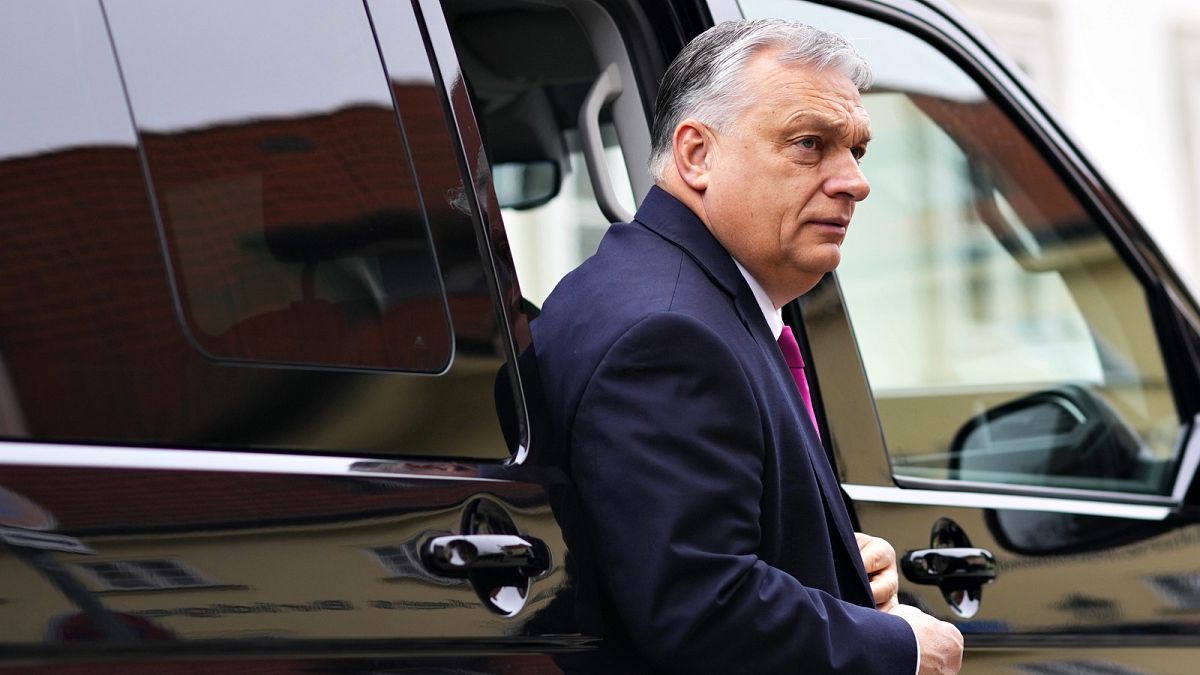Hungary won’t rule out using veto during EU Council presidency
Hungary will use its veto power if necessary once it assumes the rotating presidency of the Council of the EU. The country is scheduled to take over the Council on 1 July, succeeding Belgium. As presidency holder, Hungary will be in charge of setting the political agenda, moderating talks among member states and representing the […]


Hungary will use its veto power if necessary once it assumes the rotating presidency of the Council of the EU.
The country is scheduled to take over the Council on 1 July, succeeding Belgium.
As presidency holder, Hungary will be in charge of setting the political agenda, moderating talks among member states and representing the institution vis-a-vis the European Parliament and the European Commission.
This prospect has fuelled fears that the country will disregard the role of “honest broker” and abuse the position to stall, block or simply ignore key files that it views unfavourably, such as support for Ukraine and sanctions against Russia.
According to Zoltán Kovács, the government’s international spokesperson, who is coordinating the upcoming presidency, Hungary will not withhold issues from the common agenda but will nevertheless make its voice heard.
“We know what it means to be an honest broker,” Kovács said on Thursday during a briefing with journalists, attended by Euronews.
“We know our role and duties concerning the presidency, but it doesn’t mean that Hungary is not going to speak out for its own position.”
Since Vladimir Putin decided to launch its all-out invasion of Ukraine in February 2022, Hungary has outraged its fellow countries by extensively using its veto power to derail collective decisions and extract concessions. This has been the case in the EU ban on Russian oil, the blacklisting of Patriarch Kirill and the €50-billion special fund for Ukraine.
For almost a year, Hungary has maintained a firm veto on a €500-million tranche of military support for Kyiv. The blockage means the other member states cannot ask for reimbursements under the European Peace Facility (EPF).
Other EU Leaders have at times looked visibly frustrated with Prime Minister Viktor Orbán, who has vowed to “occupy Brussels” and “bring change” to the bloc according to his nationalist, hard-right ideology.
Asked if the country would use the veto while holding the Council’s presidency, Kovács suggested it would do so if necessary.
“Until there is a common position, there is no common position,” he said.
A presidency holder single-handedly wielding a veto would spark immediate controversy as they’re expected to abstain in sensitive files that they would otherwise vote against. But Kovács made it clear that in cases where the country has a “strong” stance, it would remain unfazed by the expectations.
“Just because we’re presiding doesn’t mean we will give up our own position,” he said. “Working out the consensus doesn’t mean we give up ours.”
Kovács noted that “respect” for national interests was the “essence” of the European Union and used the recent approval of the New Pact on Migration and Asylum as an example of the bloc disregarding the need for “consensus.”
However, according to the Treaties, migration policy is decided by qualified majority, not unanimity.














